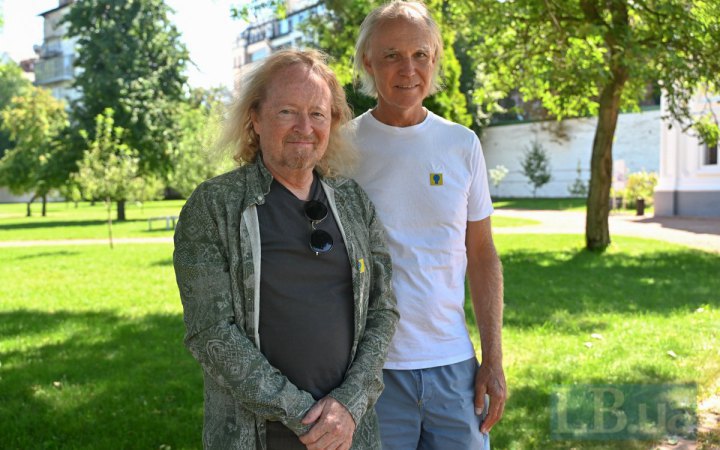
First, I would like to ask you both about your childhood in Norway and how you remember the atmosphere that surrounded you at that time.
Lakki: I grew up on a small peninsula near Oslo, outside the capital, and went to school like everyone else at the time. I remember wanting to stay home and just play guitar, but my parents wouldn't let me, so I had to go to school. It was before gadgets and the internet, so boredom was my big motivation. Instead of being bored, I played guitar. Now, instead of being bored, people go to their phones, and you know, luckily, I didn't have that.
I grew up in a house where you could see the fjord, where big ships from Oslo came and went, and I would sit and play the guitar and wonder where they were going when they left and where they were coming from when they arrived. And I had to negotiate with my mother because she wanted me to do something else besides playing the guitar. So, if I cleaned my room, for example, I would get another hour or two. And if I had my hair done, you know, I would get many more hours (laughs).
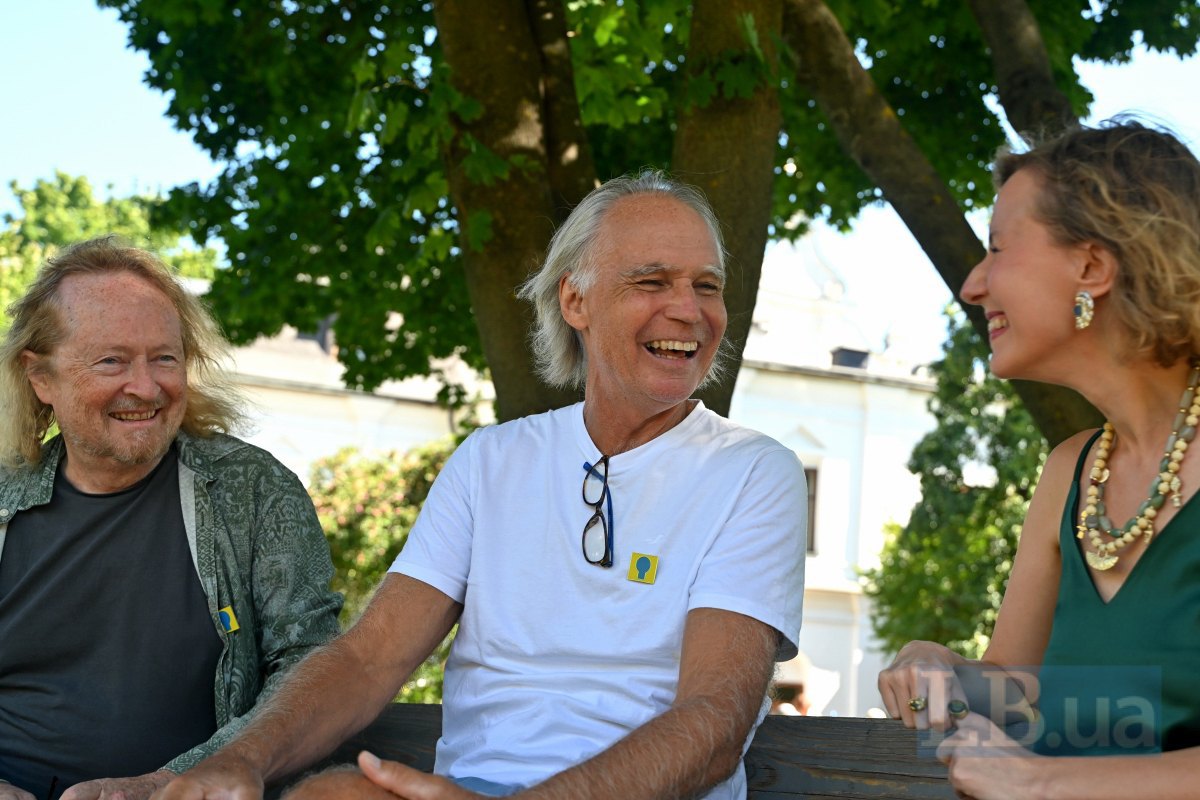
What about your parents?
Lakki: My mother was a piano teacher, so there was a lot of music, and my father also played the piano.
How did you meet Øystein?
Lakki: So, I grew up in a musical family. But the peninsula where I grew up was very small, so I didn't meet many other people my age who were interested in music. But when I turned 17, I started attending a music school on the other side of Oslo, so I had to move and live on my own. And then I met this wonderful young man (points to Øystein). And we, you know, immediately hit it off and started playing together. And for me, it was a huge inspiration, because where I used to live, there was no one who was really interested in what I was interested in. I met Øystein, we formed a band, started playing together. And very soon we decided to try to make an album. We had some very original ideas.
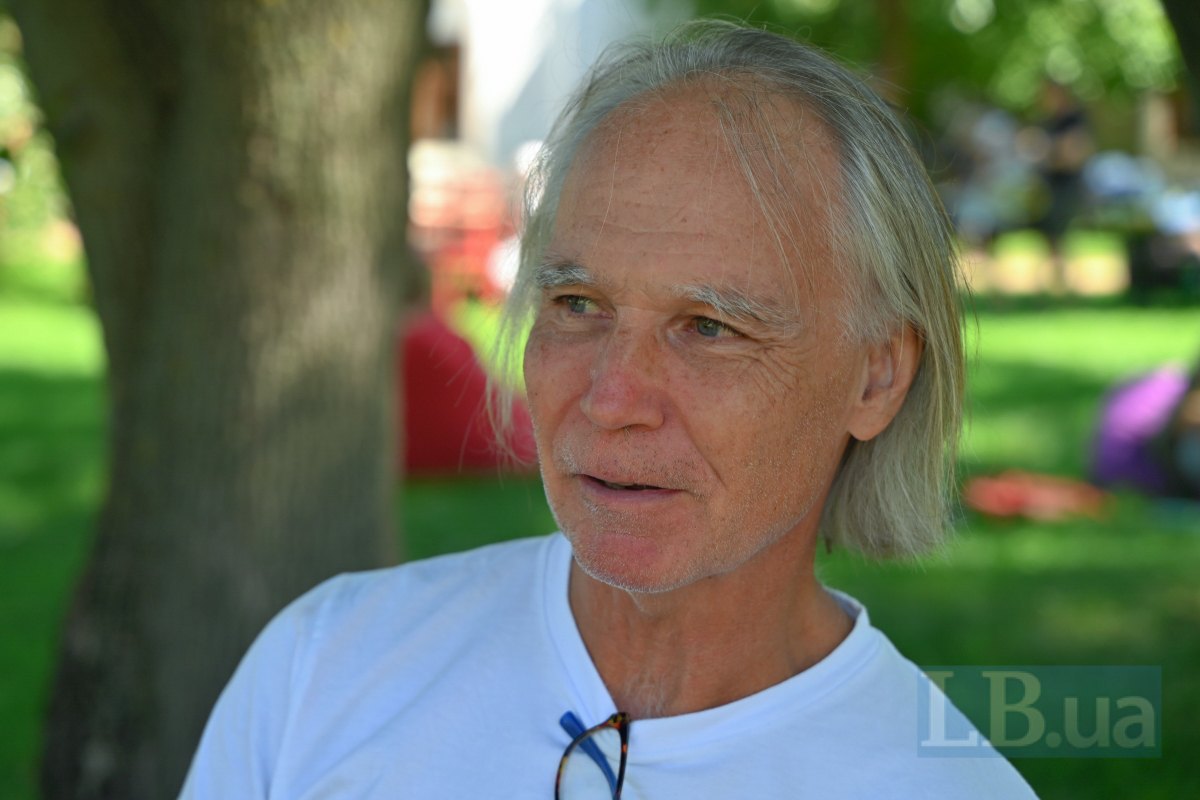
Øystein, I read that your father worked with folk music, which is an interesting fact. Do you think that this had any influence on you and your future development?
Øystein: Yes, when I was 11 years old, I went on a trip with my father to one of the valleys in Norway. He was a museum curator and ethnomusicologist. He headed the Norwegian Institute of Folk Music for many years. He had a portable tape recorder and a camera, and he wanted to record old violinists and hardanger fiddle players — at that time, we were afraid that this music might disappear. Because it wasn't recorded, it was music that was passed down from generation to generation. In the 1970s, the situation looked dangerous for the preservation of this music. So he and a few other people travelled around, registering and recording music and performers for a large archive. They photographed instruments, measured them and did many other things. He wrote several books about it. And that was part of my childhood.
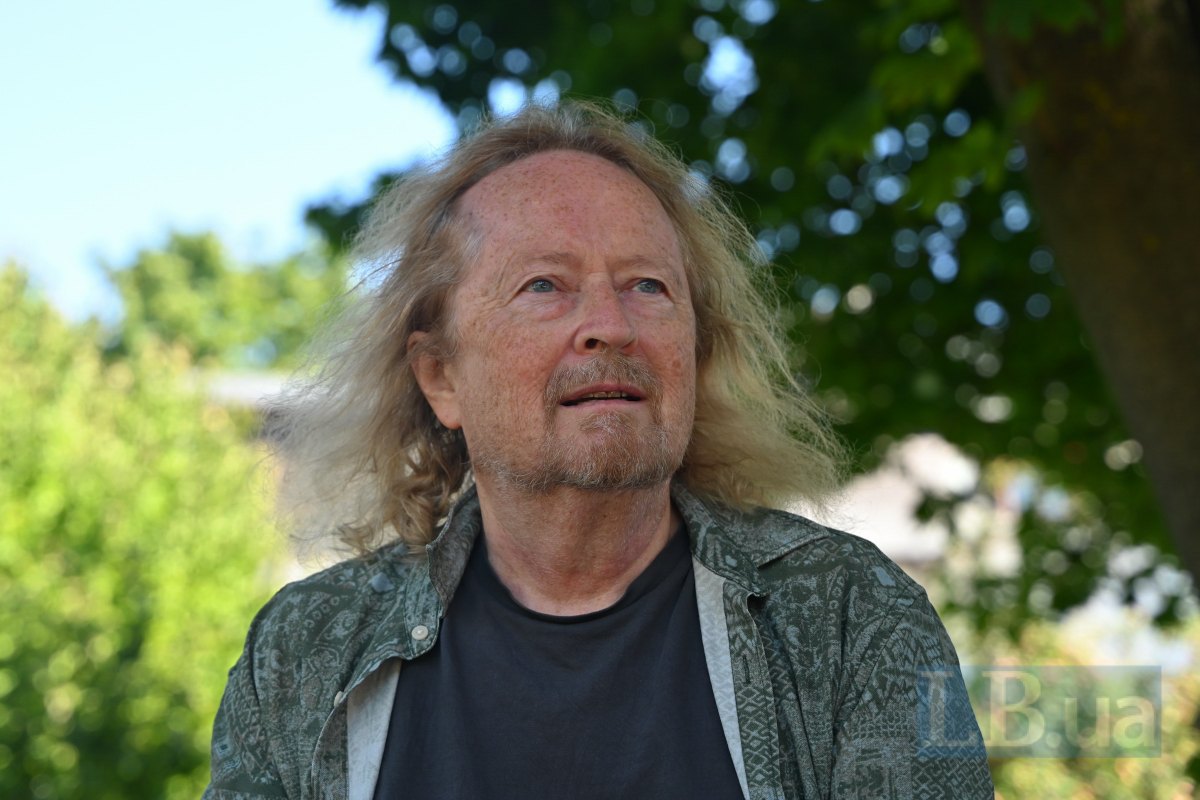
Also, when you ask about the atmosphere, about what it was like to grow up in Norway, it was during the Cold War. People were very aware of the conflict between East and West and the Iron Curtain across Europe. My father sometimes attended international conferences in Budapest and Moscow, where he could meet other guardians of folk music. They met, exchanged knowledge about these things, and it was really very important to him. He wanted to feel that it was possible to build a bridge across this wall.
So that was part of the atmosphere. When the wall came down in 1990, we were all very moved by the fact that the world was opening up, and we had so much hope for the future. Now everything looks completely different. I'm not giving up, but...
Episode 359 of this "series"...
Øystein: Oh yes. I also played the piano from the age of five. My teacher was my dad, and Lakki’s was his mum.
I wasn't very interested in following the classical path, i.e. learning all the pieces and scales — I found my own way. Some people told me I was lazy, but I felt that it wasn't quite what I should be doing, so I just continued on my path.
We need more lazy people like that, especially in music (smiles). But let's get back to your first album, Visual.
Lakki: We wanted to combine classical musicians with what we call jazz musicians, or people who are more used to playing improvised music. And we created a completely acoustic album with a string sextet, a brass sextet, percussion and double bass. He played the piano, I played the acoustic guitar, and we also had three different saxophonists with us. And in the process, we wrote all the arrangements together. He was the one who knew how to write arrangements, and in fact, he was the one who wrote everything down. We spent hours and hours together preparing for this album.
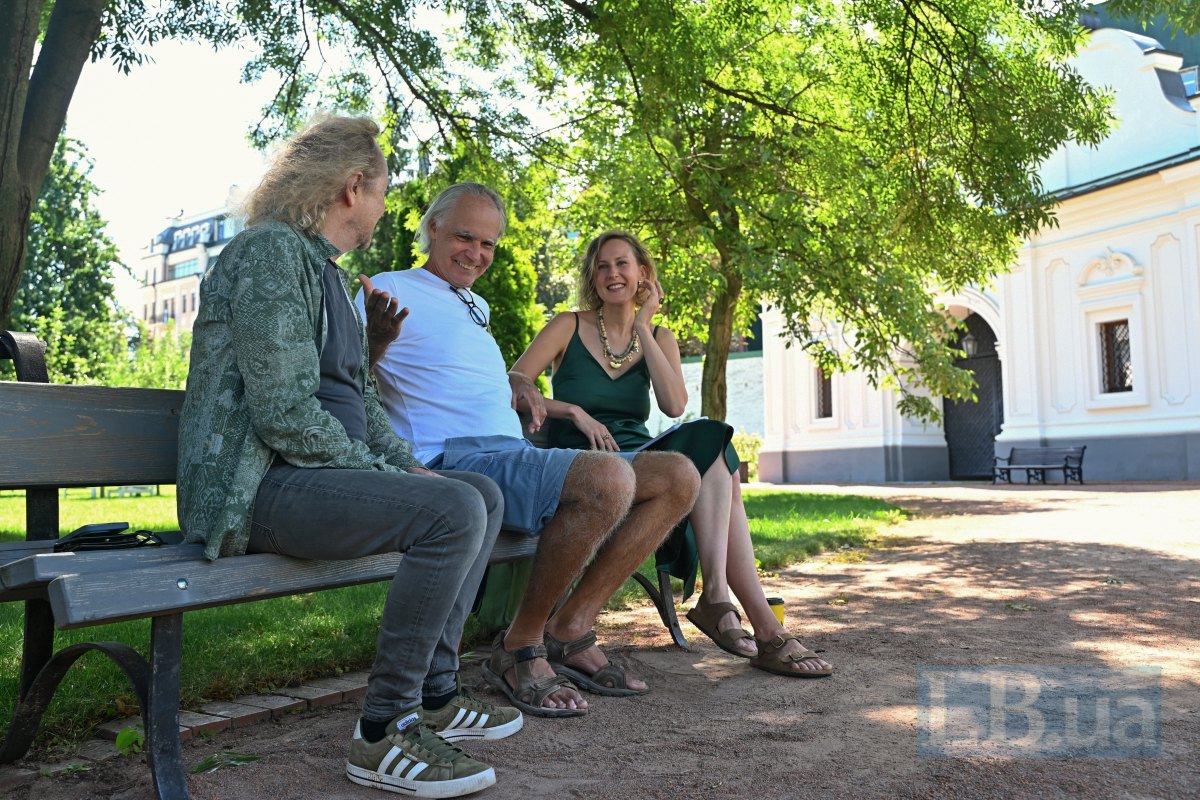
Tell us more about the album Visual. How did the collaboration process work?
Øystein: Okay, Lakki talked about the first project we did together. We started in high school and worked for seven years, which is quite a long time. When you're that young, you know, you need a break — I did my thing, and Lakki did his. Then, about 10 years later, we met again to make our first joint album, Visual. At the time, I was living in an old wooden house near Oslofjord (100 km south of Oslo) and I had a really nice place where I built a studio. At that time, I had a contract with an American label for several albums, which was a huge achievement for me, and I wanted to make the third album I was planning with that label with Lakki. He played a little on the previous album, and we felt that we had accumulated a lot of material that needed to be released, and an album was the perfect way to do that.
And what happened next?
Øystein: We worked in the studio, did a lot of improvising, just started playing and turned on the recorder, then stopped — and that was one track. We did some tracks that way, and all the tracks were based on more structured compositions. Most of them were written by Lakki, some by me, and then we put everything together into an album. I remember that the American label, which had worldwide distribution at the time, was sceptical, saying that it was a very intimate, restrained album, and they didn't see how it could be commercially successful.
A classic case of "not the right format"...
Øystein: And, you know, 29 years later, we had six million plays, so sometimes you just have to listen to your heart.
Always...
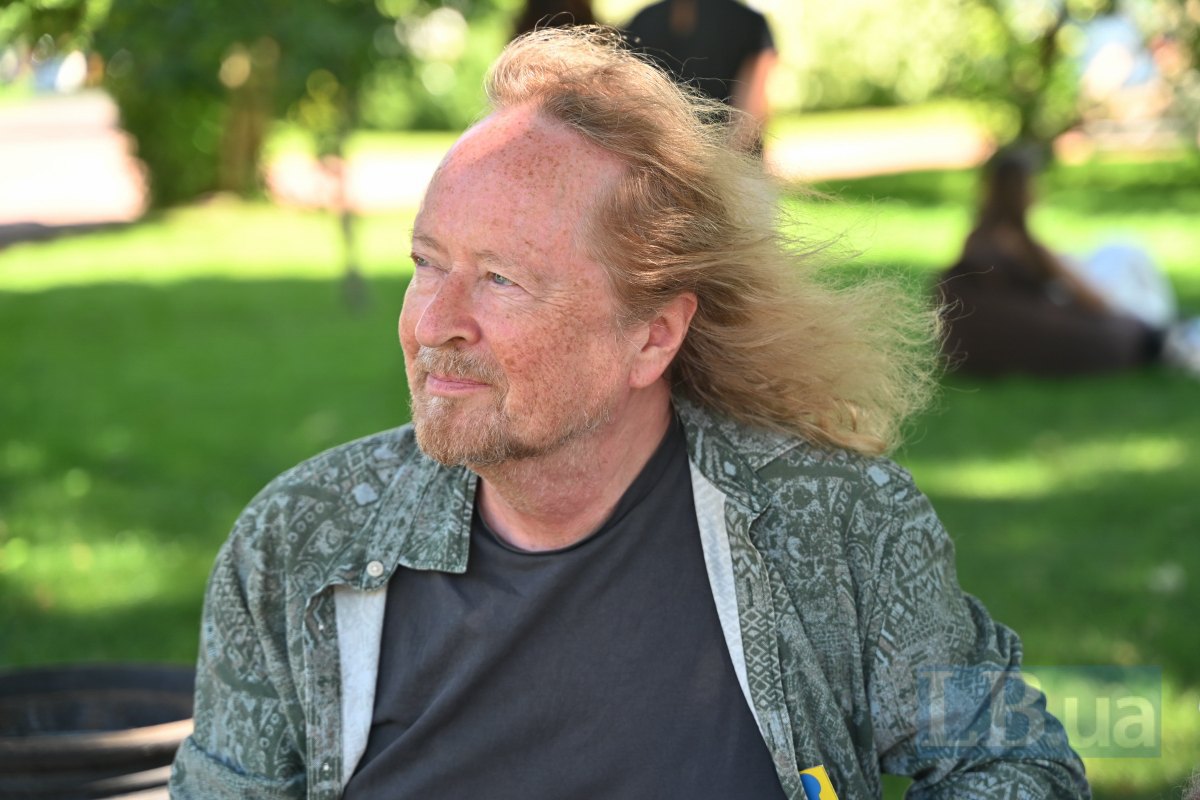
Øystein: But sometimes it's tempting to listen to loud voices about what's commercially smart, and, you know, in the end, it's the heart that has to decide.
But it's worth noting that the producers or label representatives themselves also have to take a risk and give the artist free rein. So that everything isn't just according to plan, right?
Øystein: They want to name a category and want the music to fit into that category. And I think when we make music, it always becomes a new category (smiles). When it doesn't fit into anything, it's hard for them to understand how to sell it and where to put it. So it has to forge its own path. But I've always thought that the most important thing for us is to play live, meet people and play in front of them, because then they understand what it's all about. And then it can open the way for recording.
I was very interested in the evocative titles of your albums. For example, like Close Your Eyes and See. Can we say that these are parts, steps of your human, spiritual journey?
Lakki: These are fantastic titles. But all of his are like that.
Øystein: By the way, Close Your Eyes And See is my only album where the title appeared many years before I started working with music. At the time, I was living in a mountain village in Italy, doing yoga every morning and evening, eating very healthy food and drinking only herbal tea. It was a very special time of complete isolation. And then this title came to me. I knew that the music would follow. Then I moved back to Norway, settled in a house by the fjord, built a studio, and started working. A few years later, I started making music. But mostly, the music comes first, and the title comes later.
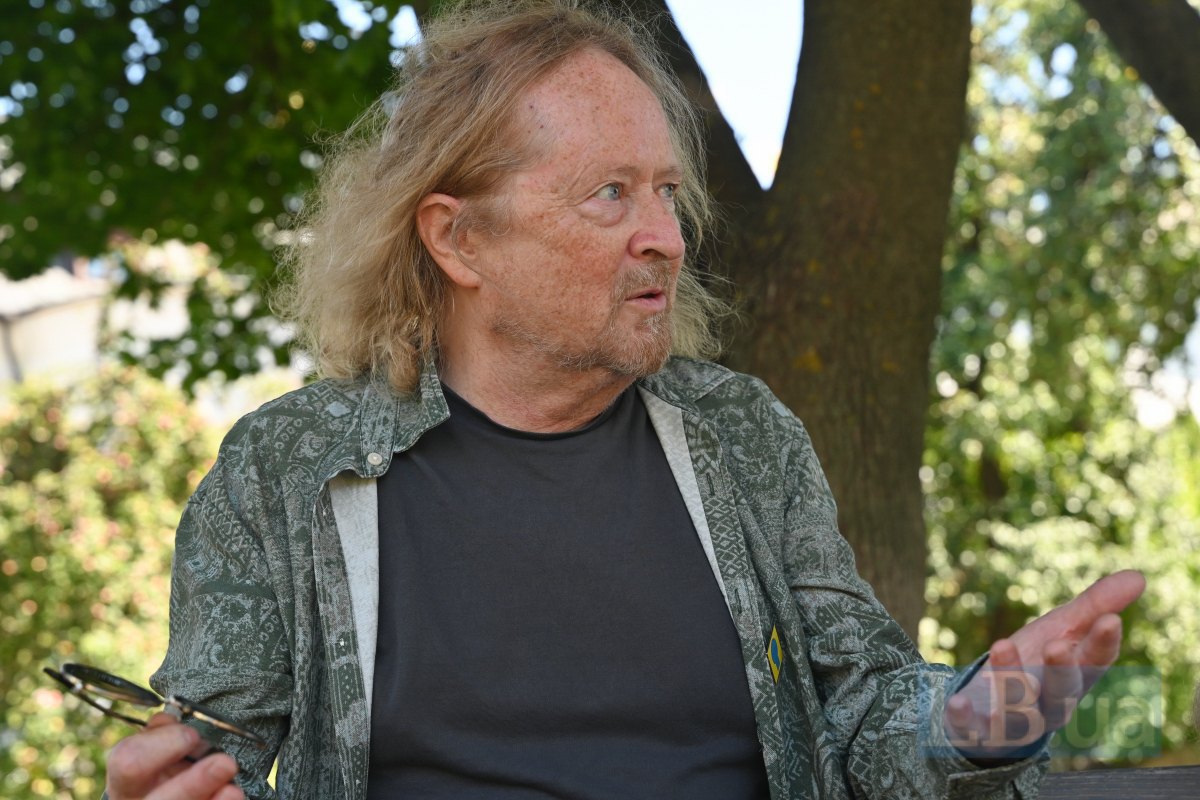
How interesting...
Øystein: My idea about titles is that they should give a hint, but not be too narrow for the listener, so that people can associate them however they want. And yes, that's why we make instrumental music. We work without words.
So the title is the only place where we can use words, so we have to be careful.
Lakki: I think you have very good titles.
He has an album called Bridge — it's an open title, but it speaks about a bridge between something. And there's Link, which is the same. So I think your titles are very good. I also like his solo piano album. Have you heard it?
Yes. It feels like diving into something very intimate.
Lakki: It's called Based on a True Story. And I really like that title. You understand what this true story is about. I can hear what it's about from the music. So, I think, yes, the titles at least resonate very well with me.
You brought your new album, Visual 2, to Kyiv for the Bouquet Kyiv Stage. Why did you decide to make it? It's like a continuation, but at the same time you are completely different: many years have passed, it's a different time, a different atmosphere.
Øystein: I think we've been talking about a new album for 30 years. Then life went on, we did different things. And I hardly did any music. I worked on something completely different for many years, which took up all my attention. And about every two years we discussed making a second album.
I always thought we should do it with the same instruments we used in the first part. And that the style should be similar. And then Lakki came up with an idea: to make it completely acoustic. When he said that, it took me another five or ten years to understand (laughs).
And to forget about deadlines (laughs in response).
Lakki: Yes, and it's actually a good idea, because the piano has its own sound.
Øystein: Besides, the music is different. I hope that after 30 years, something will change in the development of musical maturity. And we saw how our first album is played more often on streaming platforms... After 29 years! So we thought it might be good to create something new instead of constantly listening to the old album and give people a fresh new stream. That was part of our motivation.
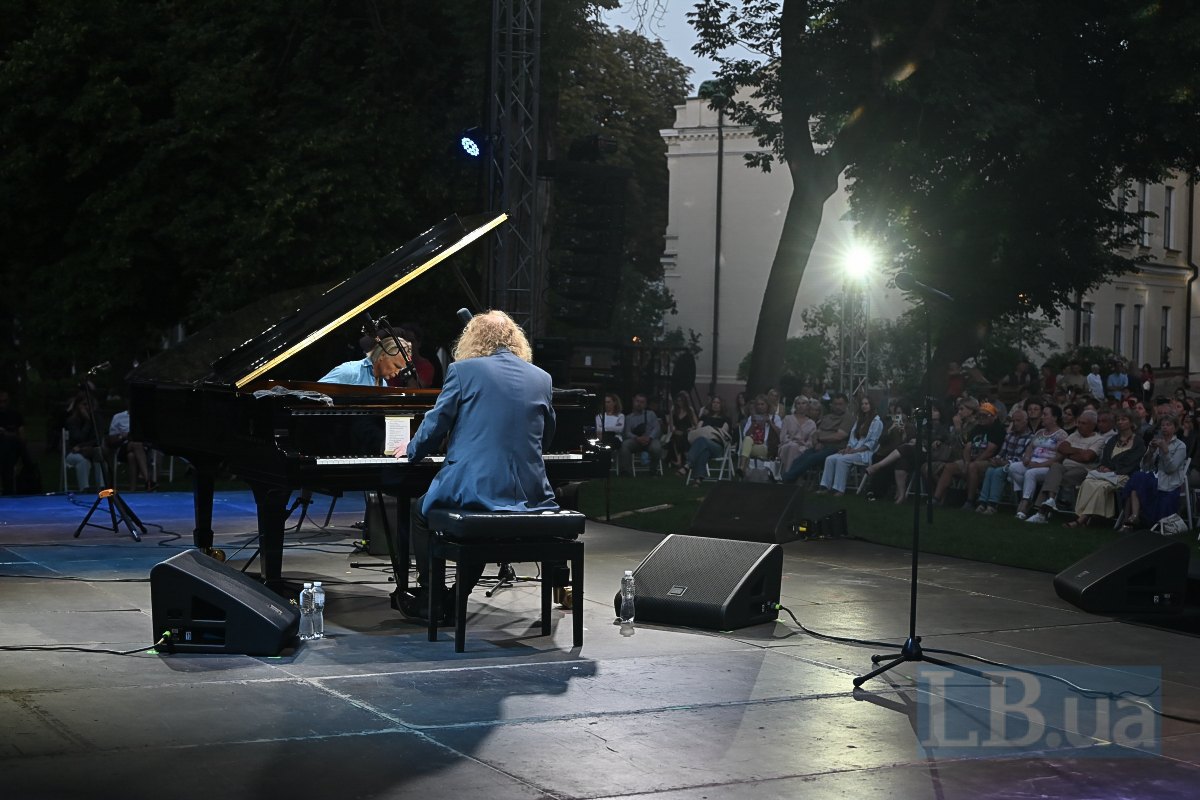
Lakki: I think we also wanted to do something completely organic, acoustic. Øystein was already moving in that direction — from digital instruments to just a grand piano. And I hadn't played electric guitar since I was a teenager. For me, it was mostly acoustic. The only question was how to do it, and we just did it. So, in fact, we had to write music for these two instruments, which we did.
Øystein: Yes, and I was getting more and more into classical music. I wrote music for symphony orchestras and I really love it — giving the conductor a complete score where every detail is written down. That's what I really love. At the same time, I like the opportunity to improvise. The combination of the two is very enjoyable. And the concept we are working on combines completely open improvisation and very strict compositions and everything in between. It's a broad concept.
Øystein, this is not your first visit to Ukraine; you were at Bouquet Kyiv Stage six years ago. How do you feel about Ukraine now? Were you afraid to come? After all, the situation is constantly changing, and there could be attacks.
Øystein: When we received the invitation, and even before we decided, there were some doubts as to whether we would be able to fit it into our schedule and other commitments. But before the decision was made, I already felt this pull.
And after the decision was made, I felt: okay, let's go. We'll be in Ukraine for a few days and then we'll return to peaceful Norway. You live here permanently, so the question of whether to go was not an issue for us. I think it's very meaningful to be here and play for you. It makes a lot of sense for us. You know, musicians have performances that make more sense than others, and this is one of them.
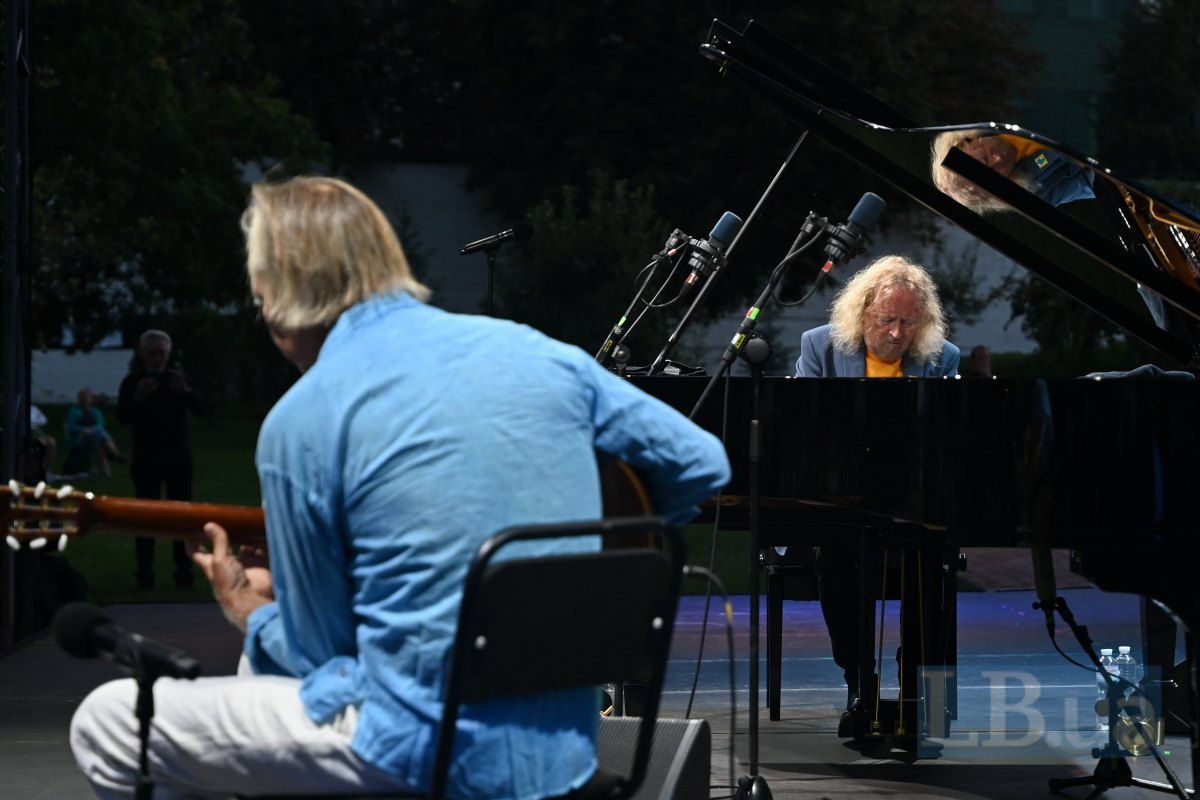
And we are also recording this conversation in St. Sophia Cathedral in Kyiv, a place that is deeply connected to the history of this land, the history of your land, and, in fact, the history of the entire continent. I am curious to know whether the energy of a place is important to you. In simple terms, does it matter to you where you play?
Lakki: Yes, absolutely. And, of course, the most important thing is the audience, so that we can communicate with them. But if we are in the wrong place, then it is very difficult to interact with the audience. And St. Sophia's is the perfect place for our performance, although it is usually quite difficult outdoors, because some people walk around, and some are so far away that they cannot hear well. But I think it's good to play here. And I believe that the audience here is right for us.
Øystein: Yes, I played here six years ago with my wife. And it was very enjoyable. We felt a connection with the audience.
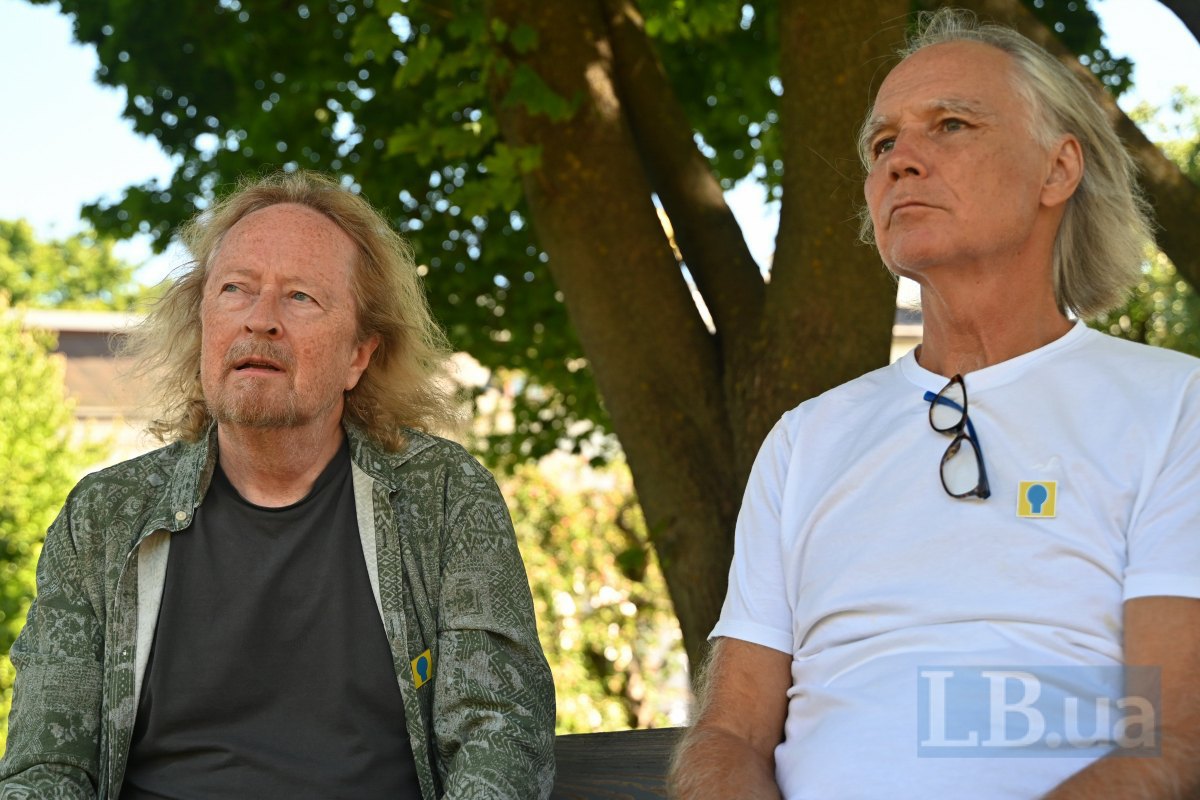
Øystein, I would also like to ask about the upcoming album, Lacrimosa. And, as we know, following the tradition of your album titles, can we say that this is a requiem for our reality, for this world? Is that your feeling?
Øystein: Yes, you are absolutely right. And I don't know if you've seen the cover, but I took it from NASA. It's a picture of the planet taken from about 600,000 kilometres away. And it looks like a tear, like a drop of water. So I thought, okay, Lacrimosa is a good name for this cover. I love this planet. And I find it so sad that humanity is incapable of uniting. There is so much destruction.
Yes, in many ways, actually. Nature suffers most of all.
Lakki: Nature is a big thing.
I remember reading Thor Heyerdahl's diaries. And it was like black humour when he describes Norway in the post-war period as having changed dramatically, industrialisation, everything is different now...
Lakki: He wrote that in his first book, Fatuhiva. He said that humanity took a wrong turn when it came to a fork in the road, where it was necessary not to continue taking more from nature, so that it could recover on its own. But when people became farmers, they grew monocultures and took more from nature, and it couldn't recover on its own. And I think he's right about that.
Are you planning to present Lacrimosa in the autumn?
Øystein: It will be released on 5 September on all platforms. And we will have a big concert presentation in Oslo with eight musicians on stage. I am looking forward to it and a little nervous. I'm happy with this album. It features a full orchestra and highly skilled classical and jazz musicians working together.
Both sides know something about each other's world. It's really another bridge.
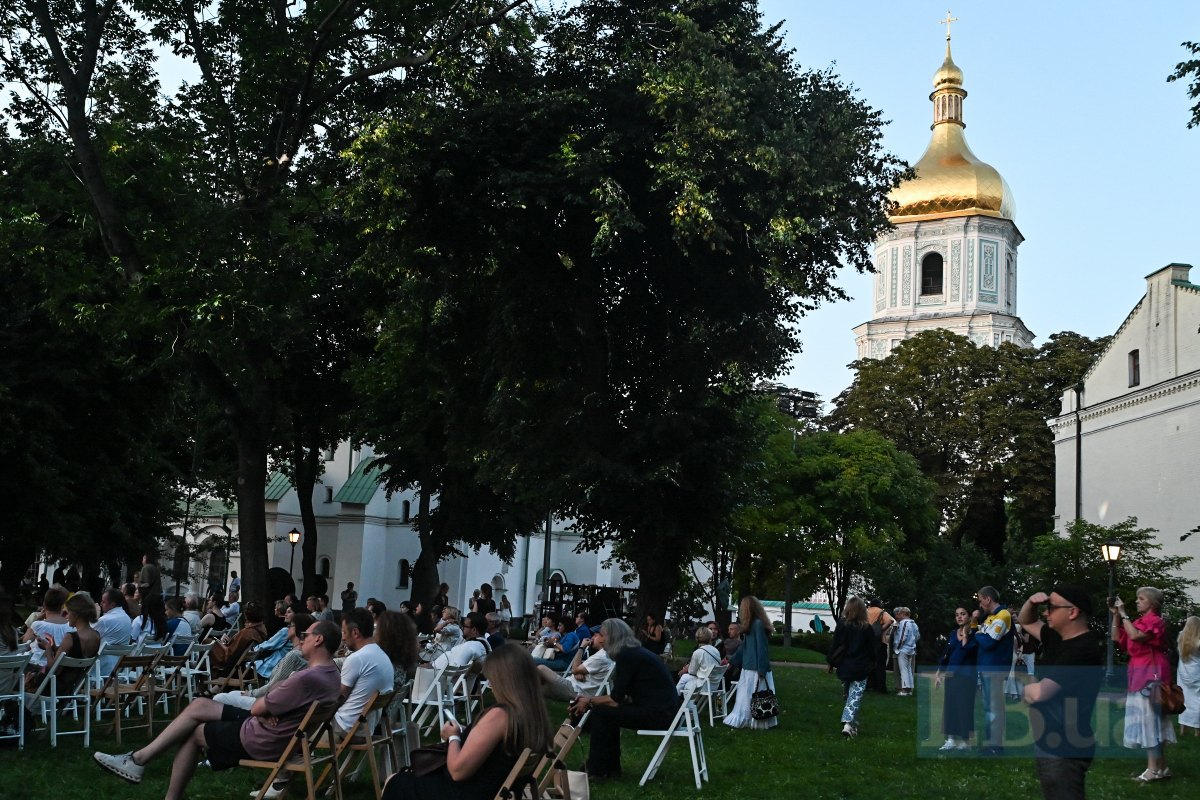
Have you had a chance to get acquainted with the music of any Ukrainian composers, either contemporary or from previous generations?
Øystein: When I was last here in 2019, it was a composer who wrote choral music.
Viktoriya Polyova?
Øystein: Yes, it was very good.
She seems to me to be somewhat close to your music.
Øystein: And it's a bit like Albuquerque (composer), only a little smoother. Because Albuquerque, who is a wonderful composer, is sometimes too harsh, very strict. Very spiritual, but very strict.
And she has such a smooth way of thinking, linear.
Yes, she is also very ascetic.
Øystein: I remember it was a piece for eight singers. They seemed to be conducting each other, standing in a circle. And it was really something special.
Finally: do you feel that your visit is an act of cultural diplomacy?
Lakki: Yes, I think you could say that, because, as Øystein said, this is probably the most important thing we have done as artists — coming here to play in Kyiv, because we are great supporters of Ukraine and we believe that the struggle you are fighting is a struggle for a free world, for the whole free world on our behalf. We want to show our respect for the Ukrainian people, that's why we're here. Some say it's brave of us to come here, but it's brave of you to be here all the time and fight this crazy neighbour who kills people for no reason.
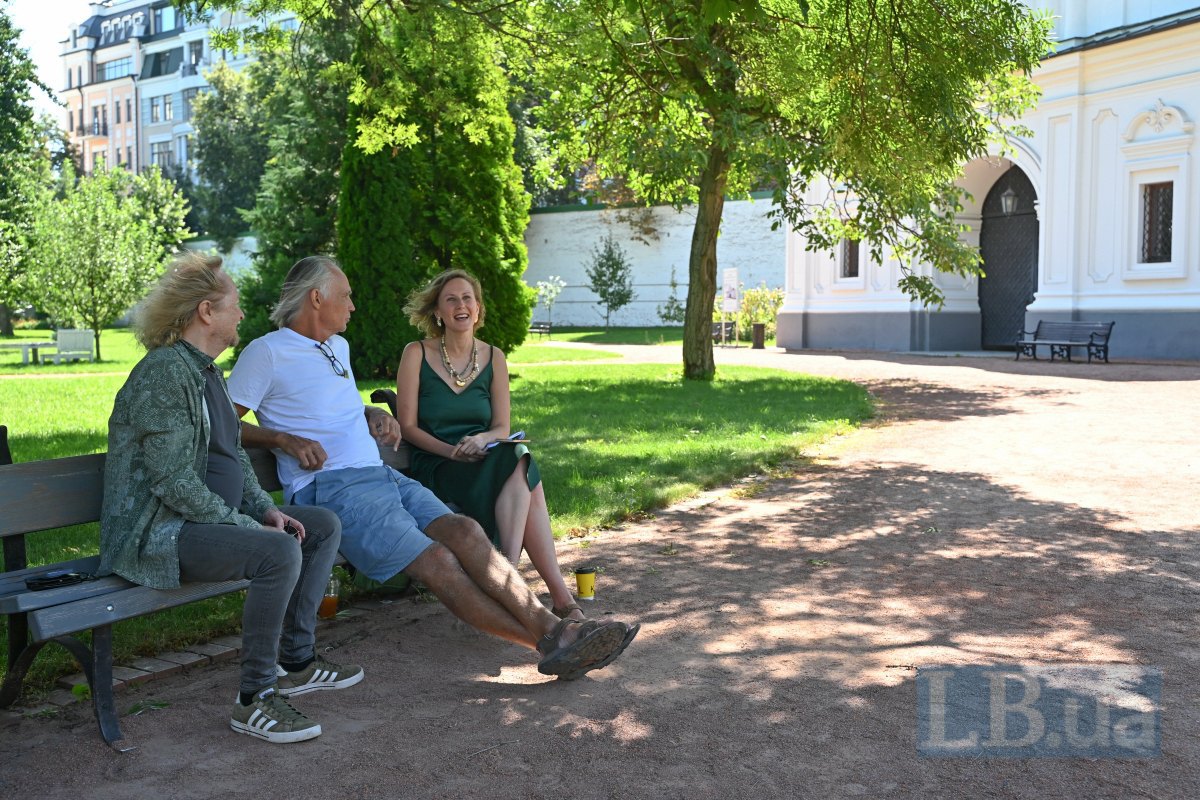
Yes, he kills everything — nature, children, our heritage...
Lakki: I think the civilised world should be doing much more for Ukraine than it is doing now. NATO should have been here from the start and stopped this before it began, because it would have been much easier to prevent the war than to win it now. That's why I feel ashamed on behalf of NATO and the whole of Europe and the United States.
That's why we're here in Kyiv, and I hope that our small contribution can bring a little light in the midst of darkness. Ultimately, you will win the war, and then life will return to its normal rhythm, but it will take a long time to deal with the trauma at all levels.
You know, if you look at our history, you can see that we are a nation of survivors. We always survive in any circumstances.
Lakki: But one thing we saw: you are smiling, music is playing. Yesterday we walked around the Radisson hotel where we were staying, and all the bars were full of people, they were well dressed, having fun, there was a positive atmosphere, and you could see that people had plans for their lives, they had something going on. And I am so impressed that you can be so positive in such circumstances. You are a great nation.









